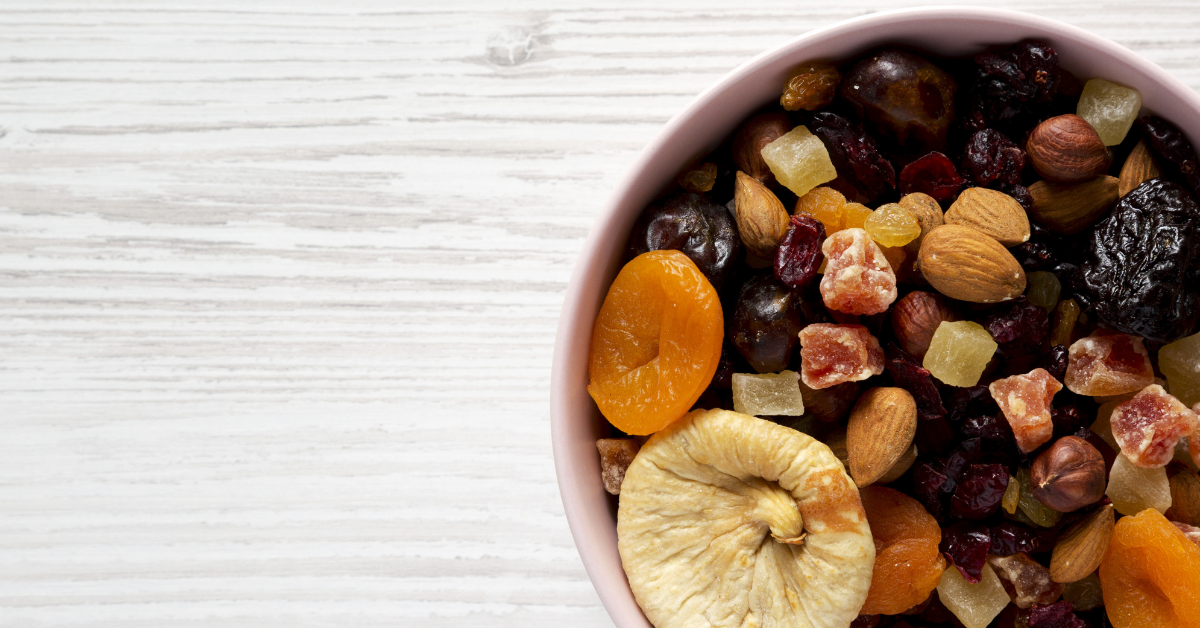What Is the Gut Microbiome, and How Can I Make It Work For Me?
There are bacteria living just about everywhere in our bodies – on the surface of our skin; in our ears, nose and mouth, and – in vast numbers – inside our digestive system. Many people might regard bacteria as dirty, and something we should rid ourselves of – but the ones in our gut actually work in harmony with us, and we couldn’t survive without the benefits they bring. They’re essential for a huge array of bodily processes connected with our health and wellbeing, including our happiness levels, our skin, our hormone balance, our energy levels and our immune system.
Each one of us has a complex, thriving microcosm of bacteria within our gut, and the happier they are, the happier and more healthy we are. For this reason, it’s important for us to foster the most favourable conditions we can for them, and this involves making sure we eat the things we know they like!
In recent years, research has uncovered increasing evidence that the bacteria that end up in our gut can be transferred to and from the people we spend our time with.[1] For this reason, it’s a good idea to ensure our nearest and dearest also eat a gut bacteria-friendly diet too! So let’s look at how we can create the finest conditions for a healthy, happy gut ecosystem….

For many years, scientists believed that the main purpose of the large intestine was just to reabsorb water and salt, and dispose of waste. But the real story they were missing is actually the wonders performed there by the friendly bacteria. Many now believe the gut microbiota should be considered as a separate organ within the body, with some pointing to the fact it has a metabolic capacity 100 times greater than the liver. The intestinal microbiome is intimately involved in metabolising dietary compounds such as polyphenols, breaking them down to extract all their goodness, and making them work for us. This is why it’s so essential that the food we eat contains as much nutrition as possible, and it’s why we need to eat as wide a range as we can of healthy, nutritious foods.
More than 10,000 microbial species occupy the human ecosystem. The amount of microorganisms in our bodies is immense, with its number stretching into the trillions. They outnumber actual human cells by around ten to one.[2] The different compounds in the different things we eat provide fuel for different groups of bacteria. One of the healthiest, most diverse gut ecosystems ever found in humans is in the Hadza tribe of Tanzania, a hunter-gatherer people reliant solely on the wild environment for food. They spend their days feasting on a gigantic variety of fruits, nuts, seeds and plants, with a largely plant-based diet, and as a result they have a massive degree of bacterial diversity, which creates brilliant conditions for their digestive system and their overall health. [3] This, combined with an active lifestyle, meant researchers found no evidence of risk factors for cardiovascular disease in this population, with a low prevalence of high blood pressure across their lifespan, combined with optimal levels of heart health.[4]
So what should we eat to delight those little bacteria the most?
The more whole foods we eat, and the fewer refined, processed ones, the happier our gut bacteria will be. It’s important to eat plenty of fibre (found in great quantities in fruit and vegetables as well as pulses and whole grains). Whereas carbohydrate, protein and fat are often absorbed into the body before they reach the gut, fibre reaches the intestine virtually unchanged, because humans don’t have the enzymes which can digest it. But our friendly gut bacteria absolutely thrive on it, and it promotes them to grow in number. We are then rewarded handsomely, as the bacteria enable and regulate a vast amount of biological processes which will make us glow with health and wellbeing. The fermentation process that occurs in our gut when we eat fibre produces short-chain fatty acids, which are an important energy source for the cells lining our colon. They also suppress inflammation and have significant cancer-fighting properties. The NHS advises that we get fibre from a variety of sources, such as wholemeal bread, brown rice, fruit, veg, beans and oats.[5] When we fail to eat enough fibre, we starve our microbial selves, and lose our protection against many kinds of Western diseases, such as colon cancer.[6]
A special mention for probiotics
The International Scientific Association for Probiotics and Prebiotics defines the word ‘probiotics’ as “live microorganisms that, when administered in adequate amounts, confer a health benefit on the host”.[7] They can be taken via supplements or the food we eat, predominantly fermented foods such as kefir, miso, tempeh and kimchi. They work by replenishing and increasing the range of friendly bacteria in our gut, which confers more health-giving benefits on us. They help fight infections, have stunning cancer-fighting properties, and can effectively stop stomach ulcers. People who take in plenty of probiotics tend to have thriving gut bacteria colonies, and this promotes leanness. There’s an ever-growing body of evidence that obesity and poor gut bacteria are closely linked.[8] A report from 2008 also concluded that if you give children probiotics, they don’t get sick nearly as much.[9]
Some foods are even better than others...
The best thing we can do for our gut bacteria is to eat plant-based whole foods, and a good variety of them. Increased microbial richness is closely associated with higher intakes of fibre-containing foods like fruit and vegetables. There are a number of things we can consume that seem to have an especially good effect on our microbiome – one of these is whole grains, which, according to a study published in 2013, led to compositional alterations of the gut microbiota that coincided with improvements in systemic inflammation.[10] Another thing much loved by our gut bacteria is green tea. Research carried out in Oslo concluded that this is superb at repairing symptoms of leaky gut syndrome, and helps our microbiome blossom in number and variety.[11] The top stars of the whole grain world for gut health are barley and brown rice. Other excellent microbiome-encouraging foods are almonds, bananas, peas and garlic.
[1]https://www.ncbi.nlm.nih.gov/pmc/articles/PMC5837012/
[2]https://www.nih.gov/news-events/news-releases/nih-human-microbiome-project-defines-normal-bacterial-makeup-body
[3]https://science.sciencemag.org/content/357/6353/802
[4]https://onlinelibrary.wiley.com/doi/10.1002/ajhb.22919
[5]https://www.nhs.uk/live-well/eat-well/good-foods-to-help-your-digestion/
[6]https://www.ncbi.nlm.nih.gov/pmc/articles/PMC4588743/
[7]https://www.nature.com/articles/nrgastro.2014.66
[8]https://www.ncbi.nlm.nih.gov/pmc/articles/PMC5082693/
[9]https://pediatrics.aappublications.org/content/124/2/e172.long
[10]https://pubmed.ncbi.nlm.nih.gov/23645316/
[11]https://www.researchgate.net/publication/330969611_Green_tea_extract_prevents_obesity_in_male_mice_by_alleviating_gut_dysbiosis_in_association_with_improved_intestinal_barrier_function_that_limits_endotoxin_translocation_and_adipose_inflammation







